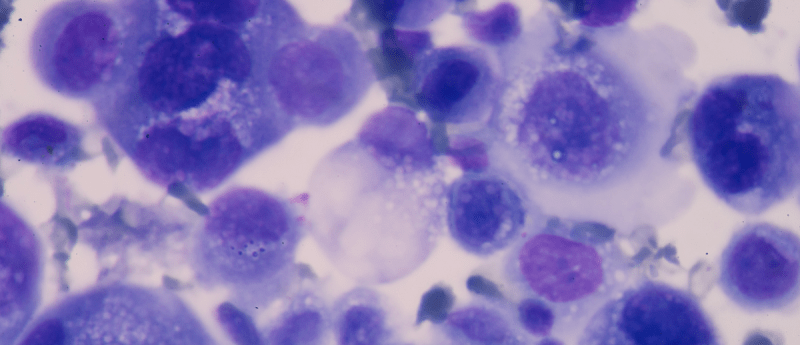Digitizing paper-based data in the cell and gene therapy sphere: an interview with Kwok Pang

The cell and gene therapy (CGT) industry faces a number of challenges in streamlining production processes from research level to commercialization. To tighten production, the industry is forging collaborations to automate processes, utilize technology in data collation and use the power of shared expertise to reduce manufacturing timelines.
In this interview, we caught up with Kwok Pang, Chief Operating Officer of Autolomous, a London (UK)-based biotechnology company engaged in manufacturing pragmatic digital solutions for CGT. Kwok discusses the current challenges in the CGT development landscape and the importance of digitizing workflows, as demonstrated by their AutoloMATE Assist product.
Can you please introduce yourself, and give us an overview of Autolomous
Autolomous is a relatively new entry into the data management space for CGT. What makes us unique is the fact that we are also CGT developers ourselves – 50% of the founders have been in this space for decades. Over that period, we have analyzed what we want from the system as customers. In fact, our tagline is ‘developed for CGT developers, by CGT developers.’ As a result, we understand the challenges and the advancement of the industry over time.
We have expanded our capabilities with our other founding partners: Alexander Seyf, our CEO, and Alexis Blain, our CTO. They have both been in the telecoms industry delivering enterprise level solutions using technologies from AWS and Google – our combined diverse experience enables us to build a solution to address the challenges within CGT manufacturing.
We are innovating in the manufacturing software space, where there are complex manufacturing value chains of multiple unit operations – involving many devices and stakeholders. To tackle this, we are building a system to be the backbone integration platform to pull all these parts together. Not only are we aiding in manufacturing, but we are also supporting the downstream process of product release and certification.
What are the current challenges in creating integrated software systems?
The challenges that we have in CGT is that the majority of data are captured on pen and paper. With all your data locked to paper, there is no way to show real time comparability and trends across all sites.
The pharma industry is cautious and conservative with its tech, yet to progress we must advance the technology in order to scale out manufacturing products in parallel. Increasing the density of manufacturing in clean room spaces should be a priority as the majority of cell and gene therapies (autologous) requires manufacturing of one patient therapy at a time. Our digital platform will give manufacturers the ability to de-risk their manufacturing strategy and accelerate their commercial pathway as they are able to use their data to drive the process. We are giving manufacturers a platform to work in a controlled and compliant manner.
Aside from increasing manufacturing scale, what other knock-on effects could this have on the industry?
The purpose of scaling up manufacturing is to drive down the cost of goods per batch. As an example, running a 10x10m2 clean room costs between £1-2 million a year in operational overhead. If you have tens of products going through ten workstations, you can make a CAR-T every ten days – this works out to roughly £40,000 of overheads per batch. If the density is increased three or four-fold, that number can potentially be driven down to £5-10,000 per batch.
Other innovators are focused on simplifying the manufacturing process and quantifying the quality of the product. For example, in flow cytometry, which is heavily operator dependent, an individual needs years of training to gain the experience to distinguish patient samples from healthy samples – people are innovating in this space to replace this highly skilled operator dependency with software which supports rapid assay execution, utilizing software algorithm. This will be a key enabler to get to decentralized manufacturing, a key knock-on effect in advancing the industry.
Downstream from manufacturing is batch certification, there is a scarcity of qualified persons to carry out reviews of paper-batch records. A CAR-T can take 10 days to manufacture, with a further two to five days to release, because there is so much documentation to review – about 100-200 pages, which is a time-consuming process for the individual. Our second service line, AutoloMATE Assist, has digitized this review process for the qualified person. This aggregates the relevant data from the batch record and displays it in an easily digestible manner to help the qualified person perform their regulatory duties much more efficiently to streamline this process.
We have been fortunate to secure an Innovate UK grant to work with Advanced Therapy Treatment Centers. Through the Midlands and Wales Advanced Therapy Treatment Center, the NHS took the initiative to build a NHS owned front-end platform solution compiling all the relevant information required by CGT developers – this allowed the CGT developers to integrate seamlessly in the back end to pull the information they require in the manufacturing stage. Our Innovate UK funded a follow-on project demonstrates the first manufacturing solution to integrate into this system to communicate with the clinic and maximize the utilization of both clinical and manufacturing capacity. Seamlessly communicating patient delays or faster manufacturing times would release additional capacity for another patient.
With the need for data security and integrity, how could data be shared amongst those different products to benefit from these shared learnings?
We are working towards a global manufacturing platforms, meaning each developer must be mindful of the regulatory requirements in different regions. Therefore, our platform segregates European data in European data centers and US data to US centers to ensure we are compliant with regional regulations. This is easier to do in cloud-native solutions, which are more widely used now in comparison with PREM-only systems. There is also enterprise level security built into these tried and tested cloud solutions.
What are the common mistakes of smaller biotechs seeking to scale-up their process?
The industry is moving so fast that biotechs are trying to develop their process as quickly as possible into the clinic – as if to run before they can walk. What works at small scale will not always work at larger commercial scale. The earlier they think about automating and closing down their processes, the easier it’s going to be. Automation and digitization will accelerate and de-risk the process to commercialization. Our platform supports and gives visibility to stakeholders to ensure data is shared across the value chain, as well as removing manual collation of data.
Any last points?
What we’re building is an agnostic integration strategy – we don’t sign exclusive deals with any one provider as there are many providers in each critical area. For example, for the electronic quality management system (eQMS) we built one integration system with Ideagen’s Q-Pulse but are also looking at MasterControl and Veeva, the other favorites. In the laboratory information management system (LIMS) space we built an integration with LabWare LIMS and are working on an integration system with LabVantage LIMS.
Our progress over the last three years demonstrates our capabilities. In three years, we built and commercialized our first product line and are currently supporting six different product types: CAR-T, tumor infiltrating lymphocytes, induced pluripotent stem cells, allogenic natural killer cells and multi-product contract development manufacturing organization layouts. Over time we will have a comprehensive integration capability which will suit any developer’s needs.
Disclaimer
The opinions expressed in this interview are those of the interviewee and do not necessarily reflect the views of RegMedNet or Future Science Group.





